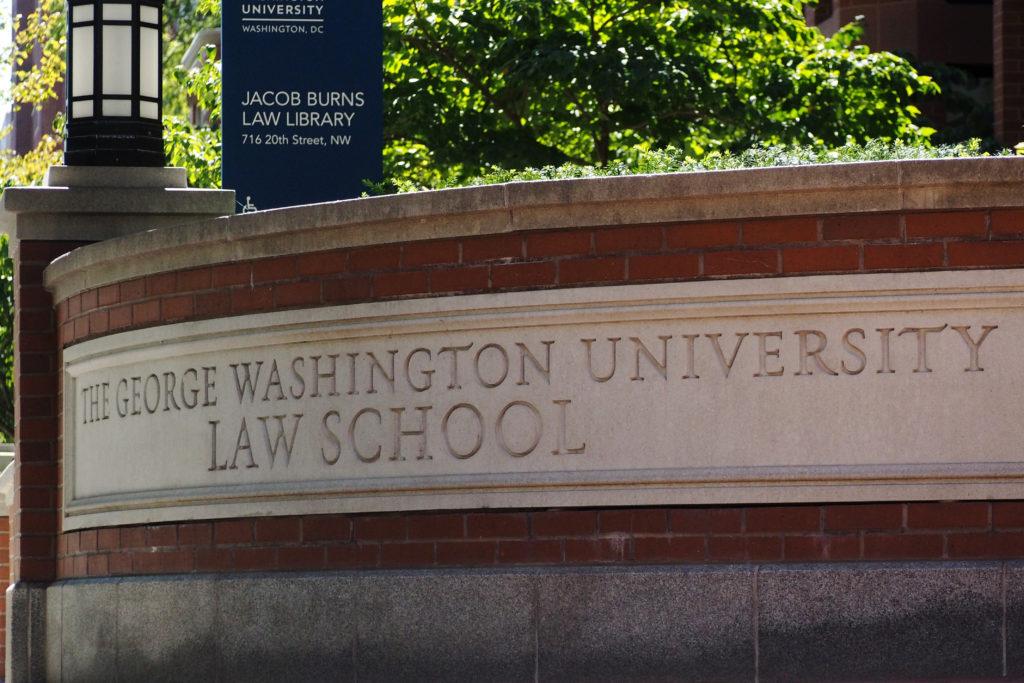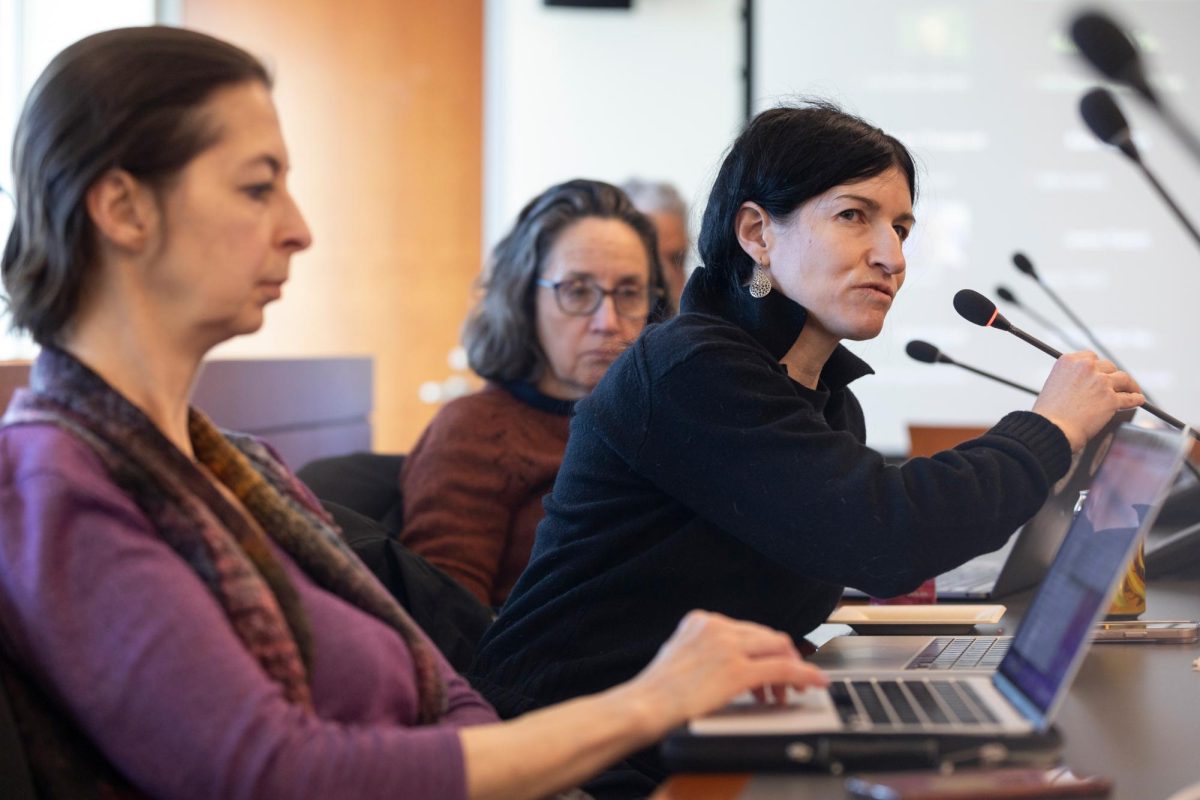GW Law officials have begun developing the school’s next strategic plan to assess the future of the law school and prioritize faculty guidance in academic and administrative affairs.
The law school launched its strategic planning process earlier this month at its first faculty meeting of the fall semester and has selected Deloitte, a professional consulting firm, to help administrators gauge faculty and other stakeholders’ perspectives to craft recommendations to implement. Law school Dean Dayna Bowen Matthew said officials are devising the new strategic plan to help the school make the best use of its resources and move forward more “confidently,” prioritizing its top goals and strengthening its programs.
“The strategic planning process will present an opportunity for the law school to decide what to prioritize, based on an assessment of the extent to which different programs can help students by taking advantage of existing strengths of the law school and our location in Washington, D.C.,” Matthew said in an email.
Matthew stepped into the role as dean of the law school in July 2020, becoming the first woman in the school’s history to hold the position. Matthew has prioritized building connections with students and faculty amid the ongoing COVID-19 pandemic while supporting diversity, equity and inclusion initiatives at the school, like classroom inclusion training, to increase representation among faculty and students.
Matthew said in a tweet that the school would also seek guidance and input for its strategic planning process from three former law school deans – Jack Friedenthal, Fred Lawrence and Mike Young.
“The goal of this process is to harness the ideas and energy of different groups in our community to help chart a path forward,” she said.
Before Matthew began her term as dean, law school professors passed a resolution in June 2020 promising to implement anti-racism initiatives among faculty, like bias training and discrimination reports. As part of new policies outlined in the resolution, officials put forward plans to increase the number of faculty and staff of color, and faculty proposed new courses and conducted classroom conversations with a greater focus on race in the United States.
The law school’s last strategic planning process, assembled during the 2013-14 academic year, targeted innovation to improve facilities, academic programs and career development.
Roger Trangsrud, a professor of complex litigation and civil procedure, said he views Deloitte as “professional” and “organized” in its involvement with the current strategic plan. Trangsrud, who led the previous strategic planning process, said the last strategic plan was more internal and involved a large committee of faculty and staff instead of an outside firm, and he expects the current plan to extend beyond this academic year.
Trangsrud said the strategic planning process can help administrators identify and address opportunities and challenges at the law school like the future of online learning and recruiting starting faculty to replace recent retirements. He said new deans, especially from outside the institution, commonly have a strategic planning process early in their deanship.
“It makes perfect sense in that setting for a new dean to have a strategic planning committee and a process so that the new dean can learn about the law school and about challenges and various options for dealing with the challenges,” he said.
Michael Abramowicz, the senior associate dean for academic affairs at the law school and a professor of law, said the school’s decision to enlist Deloitte will help officials assess the school’s future. He said administrators will consider the input they receive from faculty interviews to craft a final plan of recommendations.
“The dean was aware of processes at other schools that used consultants that had produced very good results for those schools, and we chose to go that route,” he said. “Increasingly, universities are looking to consulting firms to help them in a variety of decision-making tasks.”
Abramowicz said Deloitte will collaborate with administrators to develop its strategic plan for areas like academic programs and faculty governance instead of solely being responsible for the planning process.
“We hope that the strategic plan will allow us to focus our efforts on making the law school experience for our students as strong as possible and putting us in a financial and academic position to continue to succeed,” he said.
Joan Meier, a professor of clinical law, said she believes administrators, with the help of Deloitte, are consciously thinking about the future of the school and faculty through this planning process.
She said she is optimistic Deloitte staff will listen to her concerns because of the effort to involve faculty in the process. She said the planning process is allowing her to become more involved within the school and more excited to share her input on various issues.
“I have not felt this much input in past years as I have since this team has arrived,” Meier said.








